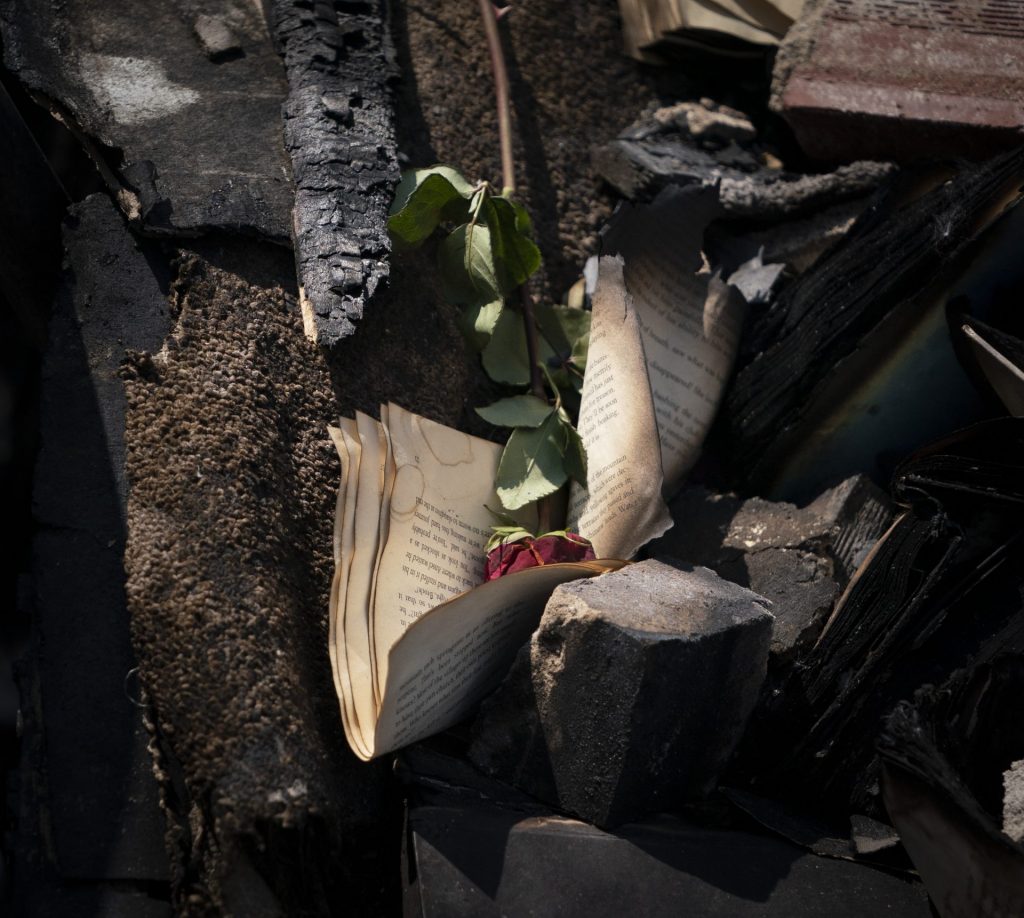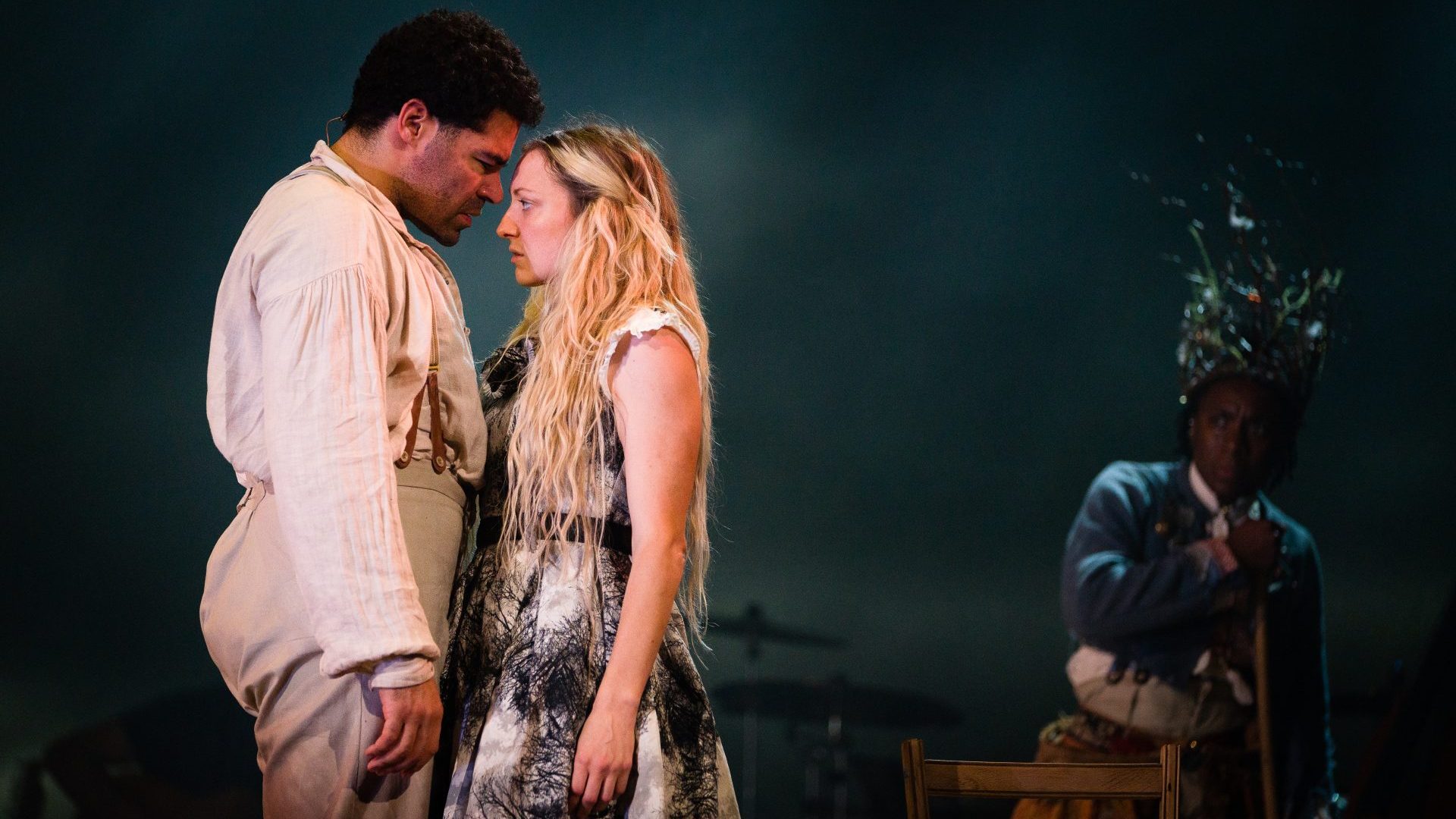Fiction can be slow to react to momentous events. This isn’t necessarily a bad thing: one of the key roles of a novel is in the filtering of epoch-defining moments and provision of a thought-provoking response wrapped up in a good story. Which can take time.
More than two decades on, for example, there has been no great 9/11 novel, no definitive take on a day when the whole world stopped to watch and everything changed. It could be that 9/11 defies fiction, the reality being too extraordinary for incorporation into imagined events and characters, or maybe it’s just still too soon.
The coronavirus pandemic presents a different kind of challenge for authors in that there is no tangible end, no moment when we can say that’s it, it’s over. There will be no last patient leaving hospital with an armful of bouquets, waving to a cheering crowd, no mass counting down the 15
minutes of the final lateral flow test. The pandemic is unlikely to have a
tangible final cadence: even if it does come to an end, the demise will be so
gradual we’ll hardly notice.
When is the right time for a literary response? After two years of a constant thrumming anxiety underpinning every aspect of our lives, are we ready for novels taking a tuning fork to that sensation? At the same time, would it be reasonable to expect authors, living like everyone else through the rupturing of normality we’ve experienced since the spring of 2020, to sidestep the pandemic in their work?
Some recent novels have linked tangentially to the coronavirus. Ali Smith’s Summer, the fourth in her seasonal quartet of post-Brexit novels, handles the virus with admirable restraint, even though the book was both written and is set during the lockdown era. Lamenting the militaristic vocabulary of the media, one character says, “The pandemic is making walls and borders and
passports as meaningless as nature knows they are”, but that’s as overt as it gets.
Sarah Moss’s The Fell takes a more direct approach, eavesdropping on four characters in a locked-down Peak District and the consequences of an illicit hike by protagonist Kate, who observes that, “one of the things we’re learning, we of the end times, is that humanity’s ending appears to be slow, lacking in cliffhangers or indeed any satisfactory narrative shape; characterised, for the lucky, by the gradual vindication of accumulating dread”. Yup.
In Burntcoat, Sarah Hall goes to the farthest extreme. Her fictional pandemic is far more virulent and calamitous than ours, one in which a sculptor and a chef negotiate an intense new relationship while society collapses around them and death roams the streets. This is full-on pandemic dystopia in a beautifully written book destined to age better than many of the instant reactions now starting to appear on the shelves.
Hanya Yanagihara’s To Paradise, meanwhile, published last month, is an epic, sprawling slab of dystopia clocking in at more than 700 pages. Its final section is set in 2093 and a world defined by a series of 21st-century pandemics that have facilitated a new global authoritarianism, a chilling
portent of what might be farther down the line in the event of the coronavirus turning out to be a relatively benign advance party for more robust, aggressive viral artillery to come.
Already we’re seeing wildly different approaches to the topic even as the first few titles emerge. Who has captured it best so far? While it’s still very early to say for sure, I can’t see many novels eclipsing the immediacy, confusion, fear and context of the pandemic better than Louise Erdrich has in her new novel The Sentence.

It seems clear that Erdrich had already embarked on her seventh novel – her sixth, The Night Watchman, won the Pulitzer Prize in 2020 – when events began to overtake her. The first section of The Sentence is a literary ghost story set in a Minneapolis bookshop run by a woman called Louise who also writes novels (Erdrich herself runs a bookshop in Minneapolis). When the plot then absorbs both the start of the coronavirus pandemic and the protests sparked by the murder of George Floyd by a police officer – an atrocity that occurred a short distance from Erdrich’s shop, Birchbark Books
– we’re seeing a novelist adapting her story practically in real time to events on her doorstep.
It’s a risky strategy that could lead to a disjointed, flabby book that fails to
become the sum of its parts, but in the hands of a writer as skilled as Erdrich, The Sentence remains coherent and fluid throughout. Mostly this is down to the strength and depth of the book’s central character, Tookie, descended like Erdrich from the Ojibwe tribe. A woman battered throughout her life by racism and circumstances who is intelligent yet flawed, warm-hearted yet capable of unthinking cruelty, Tookie is permanently convinced she’s about to do the wrong thing.
In the opening pages, we find her involved in a bizarre corpse heist in which she thinks she’s helping a friend claim the body of her deceased lover from another woman without realising there are packets of crack cocaine concealed around him. She is caught crossing the state line, her friend hangs her out to dry and Tookie is sentenced to 60 years in prison. She’s not particularly surprised by this, pointing out that of all ethnic groups in the US it’s Native Americans who receive the most disproportionately long prison sentences.
A diligent lawyer ensures she is freed in 2015 after a decade inside, during which Tookie has developed an unquenchable thirst for literature. On her release, she applies for and wins a job at a small independent Minneapolis bookshop that specialises in Native American literature, history and memoir.
“My go-to outfit was black jeans, high-top black Stompers, black football jersey, nose ring, eyebrow cuff, tight black bandanna headband to keep my hair in place,” she says. “Who would dare not buy a book from me?”
The job is the making of her, but when Flora, a regular customer, dies on All-Souls Day 2019, “when the fabric between the worlds is thin as tissue and easily torn”, things turn strange. Flora was a white woman who had attached herself to the local Native American community, raising money for charities and attending protests and campaign meetings. Her devotion grew to the extent she began claiming a Native American ancestry herself, becoming in Tookie’s words a “very persistent wannabe”.
Soon after Flora’s death, Tookie realises Flora is haunting the bookshop, hearing the silky swish of her clothes. Books start flying from the shelves. It’s a neat subversion of the hackneyed “old Indian burial ground” trope and we’re settled in for a quirky, engrossing story of a restless spirit muscling in on Tookie’s redemption.

Then the pandemic arrives. Slowly, almost imperceptibly at first, then there’s lockdown and the commencement of that strange, timeless spring of 2020 when the weeks swam into each other and we were left with no anchors of regular routine by which to regulate our days.
Tookie, whose life has been chaotic to say the least, looks out at a deserted city from the passenger seat, immersed in calm as her husband, Pollux, who as a tribal police officer had arrested her for the corpse violation all those years ago, drives home with a takeaway and she wonders aloud why it can’t be like this all the time.
“He gave me an odd look. I turned aside. The empty street swished beneath the tires. Perhaps I should have been ashamed. Why was it that I felt this was the world I’d always waited for?”
Then George Floyd is murdered and the narrative shifts again, sketching beautifully the blooms of normality among the trauma of chaos and protests, the smell of warm, fresh popcorn mixed with the “sour, musky chalk” of old tear gas. Characters join marches, the virus itself intrudes on
Tookie’s household, and all the while Flora is still there, growing stronger in her harassment of Tookie until there’s a chance to set her spirit free.
We’ve eased out of those early pandemic days barely noticing the change, yet already Tookie’s world feels like a different one. The George Floyd murder and Black Lives Matter protests are still raw, yet also distant in time somehow. The unfamiliarity of lockdown, the uncertainty of what we were dealing with as the virus rampaged across the world, it’s all here, chronicled and witnessed.
“We straggled through a year that sometimes seemed like the beginning of the end,” says Tookie. “A slow tornado. I want to forget this year, but I’m also afraid I won’t remember this year.”
The Sentence by Louise Erdrich is published by Corsair, £20.




